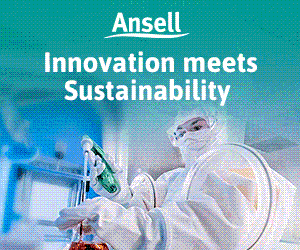Pfizer has announced it will increase its commitment to US manufacturing with a US$465 million investment to build a sterile injectable pharmaceutical production facility in Portage, Michigan.
This investment will strengthen Pfizer’s capability to produce and supply critical, life-saving injectable medicines for patients around the world.
Known as modular aseptic processing (MAP), the new, multi-story, 400,000 sq ft. production facility will also support the area economy by creating an estimated 450 new jobs in the next few years.
This expands Pfizer’s presence in Portage, located in Kalamazoo County, where the company now employs more than 2200 people at one of its largest plants.
“This investment is part of our overall plan announced in January to invest approximately $5 billion in US-based capital projects as a result of the enactment of the Tax Cuts and Jobs Act. During the next six years, we expect to invest approximately $1.1 billion in Kalamazoo County, which is in addition to the $1 billion we have invested in the site over the past decade,” said Ian Read, Chairman and CEO.
“Sterile drug product manufacturing is incredibly complex. This contemporary facility will combine cutting-edge technology and a highly talented workforce to assure we remain a trusted and reliable supplier of these therapies to patients,” said Ron Perry, Site Leader for the Portage plant.
MAP will incorporate the most technically advanced aseptic manufacturing equipment, systems and design, including multiple, self-contained modular manufacturing lines. This allows the manufacturing line in each module to be entirely separate from all other manufacturing lines.
Pfizer’s Portage site is a primary global supplier of sterile injectable, liquids and semi-solid medicines, and active pharmaceutical ingredients, producing more than 150 products. Its biggest product is Solu-Medrol, a widely used injectable anti-inflammatory medicine.
Groundbreaking is planned for spring 2019, with construction expected to be completed in 2021. After the facility is validated by regulatory agencies, production should begin in 2024.




